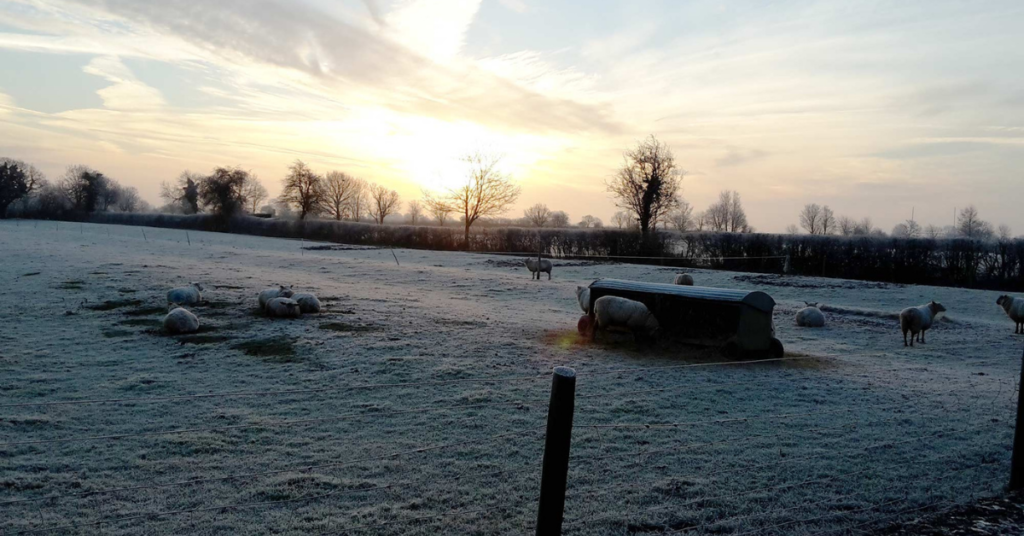It’s Child’s Play! In a Serious Way

Our Survey Winner Isabel Hands tells us more about her job at the inspirational Warriner School Farm. Introducing children to farming, food provenance and the calming effects of animals is just one aspect, but Isabel goes further, allowing the children to help administer homeopathic treatments, proving just how easy (and fun!) it is to ‘sprit sprit’ a dose of Aconite or Arnica. If the children can do it, surely it’s time for conventional farming to give it a go!
The Warriner School Farm is a 116 acre farm which was established by Oxfordshire County Council back in 1971 as part of the new Secondary School which was opened as an amalgamation of several other schools in the area. The original farm was 30 acres of grassland and 10 acres of arable, and at a time when many schools had Rural Studies on the curriculum it was not seen as particularly unusual. Even though funding was withdrawn in 1994, Warriner took the decision to maintain the Farm as a teaching resource and subsequently took on an additional 55 acres of grassland and 25 acres of arable. This has allowed the Farm to be run commercially, albeit on a very small scale, which goes a long way towards offsetting the cost of maintaining the Farm as a teaching resource.
A calming place for students
We are very much a mixed farm: 65 Lleyn ewes, 15 Dexter Cows, 2 Gloucestershire Old Spots Sows, 5 nannies (mixed breeds), 2 donkeys and around 30 laying hens. We have also recently opened a small animal department with rabbits, guinea pigs, a hamster, snakes and a bearded dragon. The school is a large secondary school situated in a village a few miles outside Banbury. While the majority of the 1400 pupils live in villages, few of them have much direct experience of farming and food production and so we aim to provide not only practical skills of caring for animals, but an understanding of farming, the environment and where their food comes from. We also have on site the specialist resource base for children with Autism. They are very much integrated into the school and often make use of the Farm as a calming place for their students to be.
The Farm is used as a teaching resource in several areas of the curriculum, and in years 10 and 11 the pupils have the option of working towards a BTEC in Animal Care, but we are also open at other times for pupils to help with tasks or just to come and visit the animals. At present, pupil access is unfortunately limited – Coronavirus precautions mean that we can only have one year group on the farm at a time as they have to stay in their year group bubbles. However, in normal circumstances, the Farm is open before school for pupils to help with the morning feeding, and at lunch times when they are able to be involved in other routine tasks such as grooming the donkeys, mucking out and bedding down, filling hay racks and collecting eggs. At lunch times, we also try to involve the pupils in as much of the life on the farm as possible so when opportunities arise they will also assist with tasks such as moving livestock, worming sheep, halter training calves, and lambing.

For about 15 years we farmed the grassland organically, certified by the Soil Association. Sadly, a few months ago, we had to take the decision to revert to conventional status for a number of reasons, but largely because we were finding it was not economically viable. I am keen that we maintain an ‘organic’ approach where possible, although there will have to be a number of compromises involved. I attended a homeopathy for farmers course several years ago and have been very gradually building up my skills ever since, sometimes with spectacular success (but sometimes not!). The pupils are often involved in administering the sprays and it’s great to be able to have a discussion with them about alternatives to the conventional approach.

Isabel Hands
Assistant Farm Manager
The Warriner School, Bloxham, Oxfordshire
Read more about The Warriner School farm

The WHAg team love to showcase farmers and supporters who epitomise the ethos of ‘Whole Health’. We live and breathe this approach, which flows through us in farming, work, and family.
